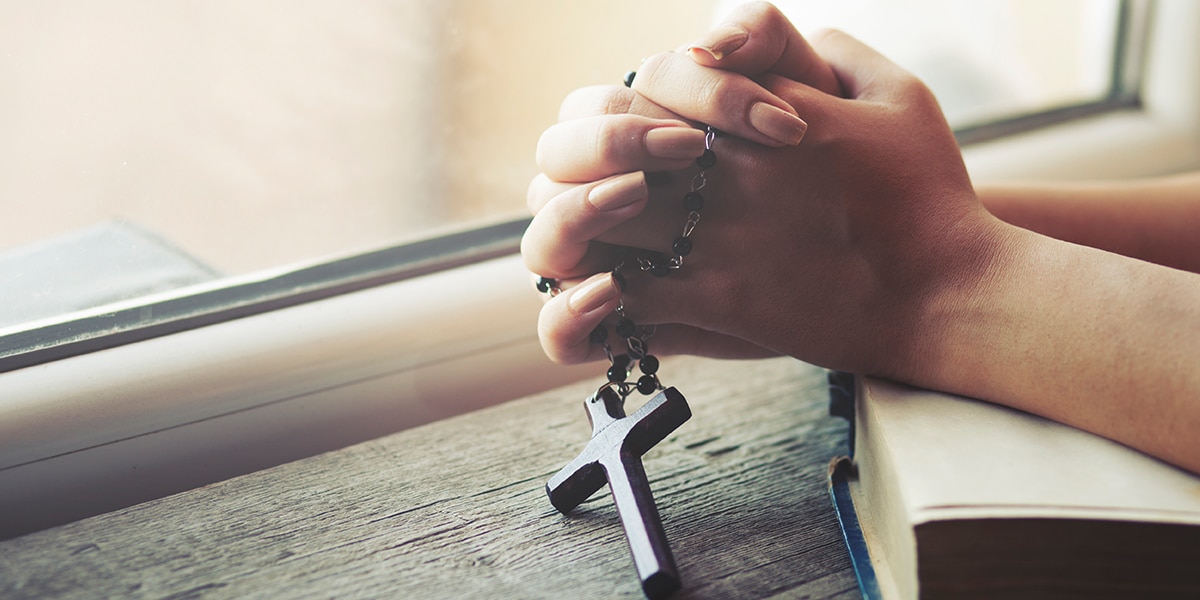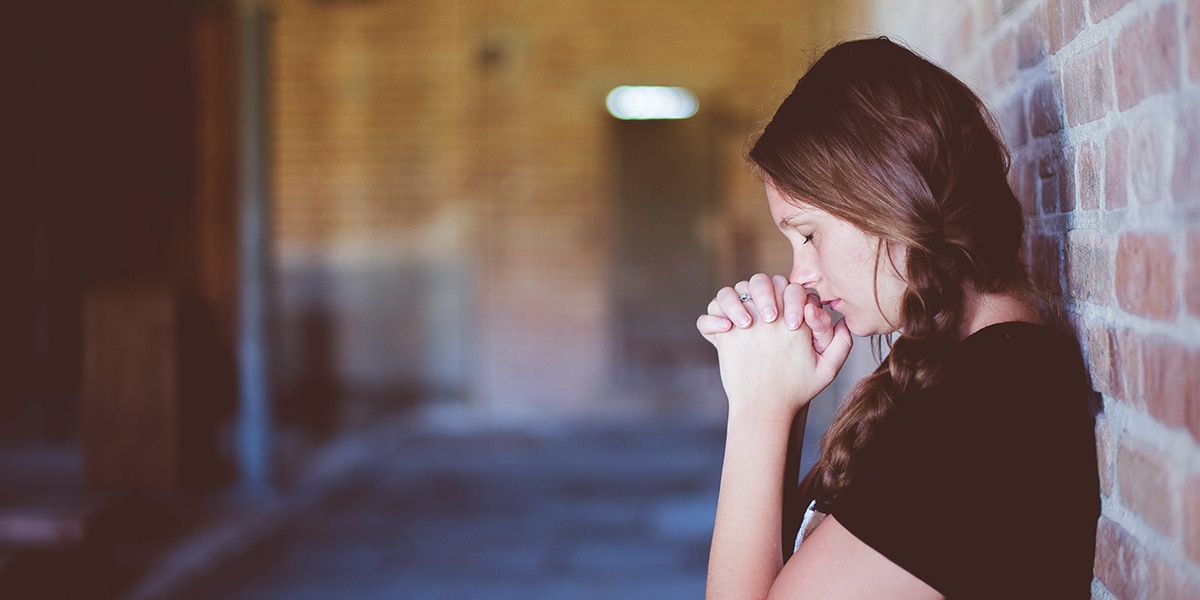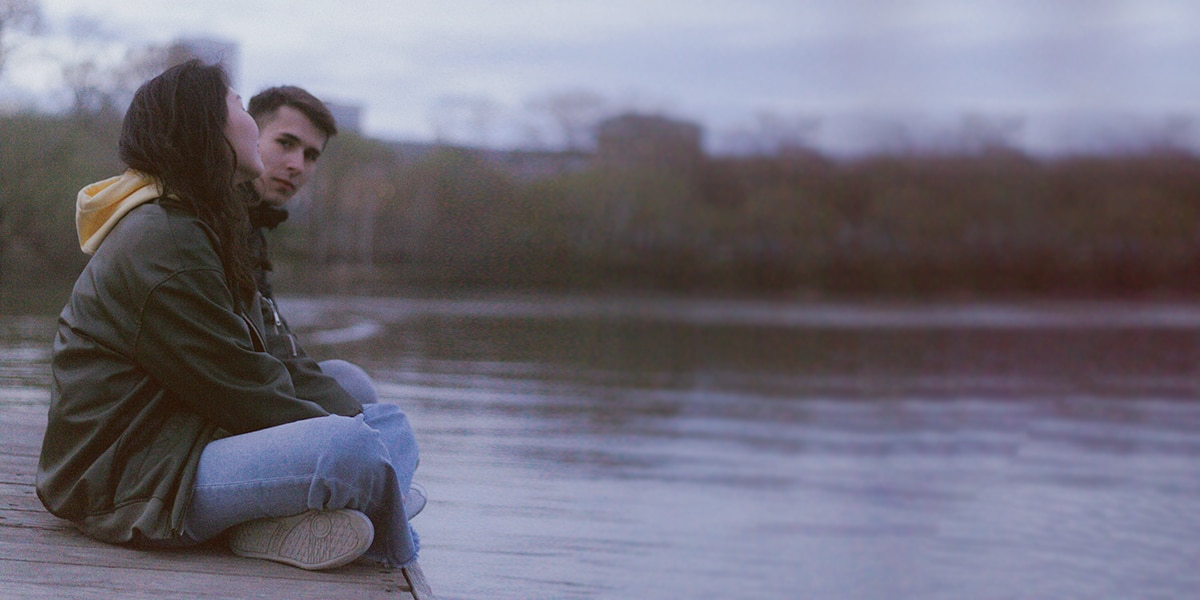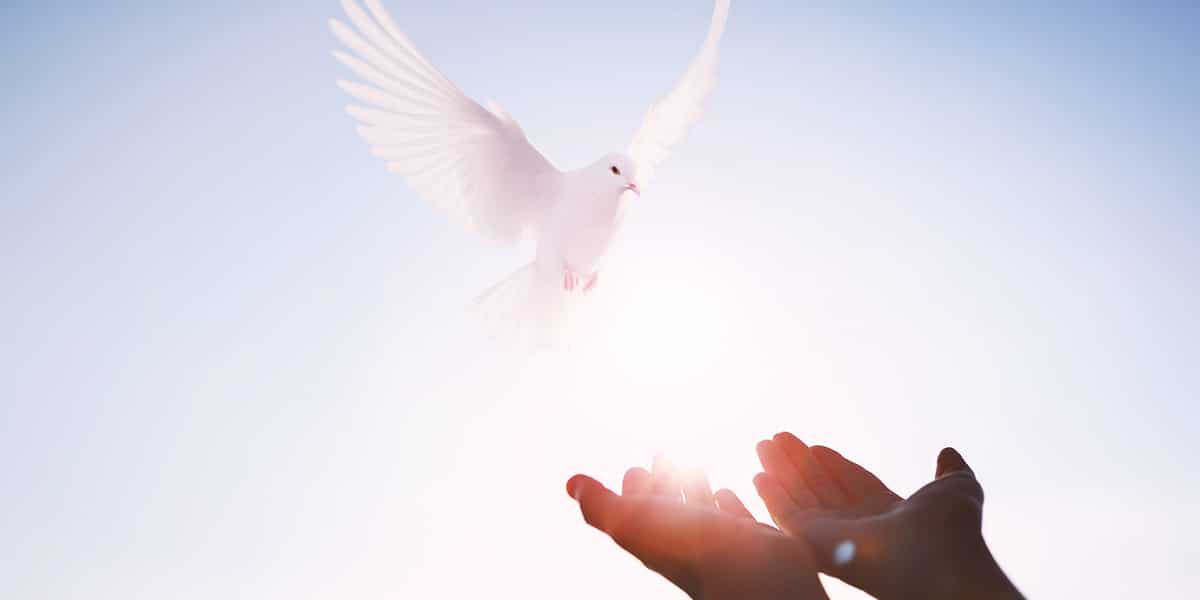ST. PAUL, Minn. (CNS) — Rebecca Maslow’s work day begins long before she walks through the doors of Hennepin County Medical Center in Minneapolis where she is a nurse in the intensive care unit.
She takes a brief time to pray before going to work, seeking the help of the Holy Spirit to love and care for the patients she will see that day. Every time she walks into a room, she knows that this could be the patient’s last day of life. She must be ready to help them die.
That’s because, woven into her job description in recent months is caring for seriously ill and dying patients, most of whom have COVID-19. Since being assigned primarily to the intensive care unit in March, she now sees the worst of the coronavirus pandemic every day. It is exhausting work, physically and emotionally and she can’t for a moment neglect the intensive protective regimen needed to keep her from getting the virus herself.
At the same time, she feels that avoiding the virus likely is a losing battle.
“I know that I will probably get it in the near future,” said Maslow, 28, who graduated from the University of Minnesota in 2014 with a nursing degree and belongs to Nativity of Our Lord Parish in St. Paul. “Most of us (hospital employees) have a resignation that we’ll probably get this at some point simply by being exposed to it so frequently, even though we’re taking these precautions.”
But, that is not the hardest part of being a nurse who is constantly exposed to the virus. The real hardship comes when she thinks about the care she cannot provide to the person lying in a bed unable to get up and, more importantly, unable to see visitors.
“The only people who are walking into their rooms are health care workers who are covered from head to toe in protective gear,” she told The Catholic Spirit, newspaper of the Diocese of St. Paul and Minneapolis. “There was one patient that I was helping to care for. … He was anxious and I was trying to comfort him. But, it just struck me — he could barely see my face. I’m smiling at him and he can’t see it because I have this mask over my mouth, my eyes are covered in protective covering, I have a surgical cap on my head, I have an isolation gown on and gloves.”
“Physical touch is such an important thing, right?” she said. “Especially when someone’s feeling isolated and alone. And, to not be able to have that connection with other people is just so hugely challenging.”
Fortunately, Maslow has devised new and equally meaningful ways to put her hands to work in providing care to COVID patients.
For one patient, she held an iPad in front of him so he could have a final Zoom call with his family as he lay dying. He was unresponsive, but at least family members could see him even though it wasn’t the same as being there.
“I can just vividly imagine the agony of not being able to be there as your family member, your loved one, is dying,” she said. “And, it just broke my heart as I was in the room. I was listening to what the family members were saying. And, the daughter was talking to her dad (the patient). She was forgiving him for all the hurts he had done (to) her throughout her life, telling him repeatedly how much she hopes he can go to God, knowing that she forgives him, knowing that she loves him and praying that he’ll accept God’s mercy and love.”
Silently, unbeknownst to the family, which couldn’t see her on the screen, Maslow took it all in — and prayed.
“I just got this sense of we’re all connected as the body of Christ,” she said. “And, somehow, in some small way, maybe the Lord was answering a little bit of her prayer, providing for her father by having me there when she couldn’t be there. I think in those moments, especially when it’s so hard to know what to say and there’s urgency in some of those heartbreaking situations, I just found myself more constantly praying, ‘Come, Holy Spirit.'”
Those three words spill from her lips often — before her 12-hour shifts, during the long and stressful hours with patients and long after her work for the day is done. Through them, she finds strength to keep going, and even to encourage her co-workers.
One of the most powerful movements of the Holy Spirit she experienced was while caring for a man dying of respiratory failure. While in the room with him the day he died in early April, a doctor who had been seeing him told Maslow that the man was a Christian. This inspired Maslow to action as she walked over to his bedside.
Like other patients, the man was dying alone, and Maslow wanted to offer him tangible comfort. She had been with him throughout the morning and even had prayed silently over him. Now, knowing he was a Christian, she offered something more. She felt like she had “this green light to be more bold with him.”
“I just sat next to him and held his hand,” she said. “And, I leaned in really close to his ear so he could hear me. And, I told him that I had heard that he was a Christian, that I was, too, and that I was going to pray over him. So, I traced the cross on his forehead. After that, I was able to just stay by his bed and hold his hand. I was not busy at all that day, which is very odd.”
She called it “such a blessing” to be with him for an hour and a half. She said he looked “calm and comfortable” after she prayed over him. He died a little while later, with Maslow still holding his hand.
Providing such care for patients has its roots in her own tragedy. On July 4, 2010, her younger brother Alex died in a car accident at the age of 16. The pain of that loss connects her to the suffering of the patients and families she sees today. But, it does come with an emotional price.
“It’s really hard because of what my family experienced,” she said. “It’s really hard for me to see families grieving. I have trouble keeping my composure.”
“When I see someone weeping, crying over their family member, it brings me right back,” she added. “It’s hard to know, sometimes, what to do with that. But, I think, even though that’s hard, it’s emotionally taxing for me, I think it’s taught me, it’s carved out a space in my heart where I can maybe empathize and love these people in a way that I wouldn’t have been able to do before.”
By Dave Hrbacek | Catholic News Service







News & Commentary
Nurse relies on the Holy Spirit in caring for COVID-19 patients
ST. PAUL, Minn. (CNS) — Rebecca Maslow’s work day begins long before she walks through the doors of Hennepin County Medical Center in Minneapolis where she is a nurse in the intensive care unit.
She takes a brief time to pray before going to work, seeking the help of the Holy Spirit to love and care for the patients she will see that day. Every time she walks into a room, she knows that this could be the patient’s last day of life. She must be ready to help them die.
That’s because, woven into her job description in recent months is caring for seriously ill and dying patients, most of whom have COVID-19. Since being assigned primarily to the intensive care unit in March, she now sees the worst of the coronavirus pandemic every day. It is exhausting work, physically and emotionally and she can’t for a moment neglect the intensive protective regimen needed to keep her from getting the virus herself.
At the same time, she feels that avoiding the virus likely is a losing battle.
“I know that I will probably get it in the near future,” said Maslow, 28, who graduated from the University of Minnesota in 2014 with a nursing degree and belongs to Nativity of Our Lord Parish in St. Paul. “Most of us (hospital employees) have a resignation that we’ll probably get this at some point simply by being exposed to it so frequently, even though we’re taking these precautions.”
But, that is not the hardest part of being a nurse who is constantly exposed to the virus. The real hardship comes when she thinks about the care she cannot provide to the person lying in a bed unable to get up and, more importantly, unable to see visitors.
“The only people who are walking into their rooms are health care workers who are covered from head to toe in protective gear,” she told The Catholic Spirit, newspaper of the Diocese of St. Paul and Minneapolis. “There was one patient that I was helping to care for. … He was anxious and I was trying to comfort him. But, it just struck me — he could barely see my face. I’m smiling at him and he can’t see it because I have this mask over my mouth, my eyes are covered in protective covering, I have a surgical cap on my head, I have an isolation gown on and gloves.”
“Physical touch is such an important thing, right?” she said. “Especially when someone’s feeling isolated and alone. And, to not be able to have that connection with other people is just so hugely challenging.”
Fortunately, Maslow has devised new and equally meaningful ways to put her hands to work in providing care to COVID patients.
For one patient, she held an iPad in front of him so he could have a final Zoom call with his family as he lay dying. He was unresponsive, but at least family members could see him even though it wasn’t the same as being there.
“I can just vividly imagine the agony of not being able to be there as your family member, your loved one, is dying,” she said. “And, it just broke my heart as I was in the room. I was listening to what the family members were saying. And, the daughter was talking to her dad (the patient). She was forgiving him for all the hurts he had done (to) her throughout her life, telling him repeatedly how much she hopes he can go to God, knowing that she forgives him, knowing that she loves him and praying that he’ll accept God’s mercy and love.”
Silently, unbeknownst to the family, which couldn’t see her on the screen, Maslow took it all in — and prayed.
“I just got this sense of we’re all connected as the body of Christ,” she said. “And, somehow, in some small way, maybe the Lord was answering a little bit of her prayer, providing for her father by having me there when she couldn’t be there. I think in those moments, especially when it’s so hard to know what to say and there’s urgency in some of those heartbreaking situations, I just found myself more constantly praying, ‘Come, Holy Spirit.'”
Those three words spill from her lips often — before her 12-hour shifts, during the long and stressful hours with patients and long after her work for the day is done. Through them, she finds strength to keep going, and even to encourage her co-workers.
One of the most powerful movements of the Holy Spirit she experienced was while caring for a man dying of respiratory failure. While in the room with him the day he died in early April, a doctor who had been seeing him told Maslow that the man was a Christian. This inspired Maslow to action as she walked over to his bedside.
Like other patients, the man was dying alone, and Maslow wanted to offer him tangible comfort. She had been with him throughout the morning and even had prayed silently over him. Now, knowing he was a Christian, she offered something more. She felt like she had “this green light to be more bold with him.”
“I just sat next to him and held his hand,” she said. “And, I leaned in really close to his ear so he could hear me. And, I told him that I had heard that he was a Christian, that I was, too, and that I was going to pray over him. So, I traced the cross on his forehead. After that, I was able to just stay by his bed and hold his hand. I was not busy at all that day, which is very odd.”
She called it “such a blessing” to be with him for an hour and a half. She said he looked “calm and comfortable” after she prayed over him. He died a little while later, with Maslow still holding his hand.
Providing such care for patients has its roots in her own tragedy. On July 4, 2010, her younger brother Alex died in a car accident at the age of 16. The pain of that loss connects her to the suffering of the patients and families she sees today. But, it does come with an emotional price.
“It’s really hard because of what my family experienced,” she said. “It’s really hard for me to see families grieving. I have trouble keeping my composure.”
“When I see someone weeping, crying over their family member, it brings me right back,” she added. “It’s hard to know, sometimes, what to do with that. But, I think, even though that’s hard, it’s emotionally taxing for me, I think it’s taught me, it’s carved out a space in my heart where I can maybe empathize and love these people in a way that I wouldn’t have been able to do before.”
By Dave Hrbacek | Catholic News Service